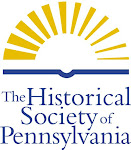Higinbotham writes "Lett me modestly putt this Querie, Who gave the first Blowe or fired the first House? We feel the Stroke you Rejoice in the Glory and Conquest. A Controversy between the Proprietors ought never to Spirit up the people to a Rebellion against their Sovereign. Now Sr, As Several have been Accomplices in this late Conspiracy, and a vast number, Abettors and incendiaries in the fomenting and Carrying on the Said Villainous and traitorous Felony, We ... are ... under the speciall Protection of his Majesty ... to take, apprehend & Seize as many of the Late Conspirators ... as we shall be able to detect and them will deliver up to the Law.---" ( Baltimore: January 4, 1736)
Ross' response is fiery and excited, as he first criticizes Higinbotham's ideas about the placement of the boundary between Pennsylvania and Maryland, writing, "But to put you in the Right and me in the Wrong, there is one principle Point to be made out, And that is that the Place of your present Rendezvous is within the Province of Maryland and not in Pennsylvania .... Now if you mean that the River Susquahannah which lies near North and South is the Boundary between Pennsylvania and Maryland, ... I must say your Geography is very bad and upon a little Recollection I presume you'll readily agree to some other Boundary, And that I expect to hear will be the 40th Degree...." (Lancaster County: January 11th, 1736/7)
Eight pages later, he lays out the reasons for the attack on Croasap, and provides a detailed account of the burning of Captain Croasap's house:









